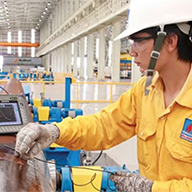Control of inflation 2023 – premise to maintain CPI below 4.5%

Economy
107 week ago — 5 min read
Vietnam's economy faces many challenges
In the Resolution on the socio-economic development plan in 2023, the National Assembly set a GDP growth rate target of 6.5%; and the growth rate of the consumer price index (CPI) is expected at about 4.5%. As 2023 is an important year to reach the target of the 5-year socio-economic development plan 2021 - 2025, this is a determined target of the National Assembly, however, the implementation of the CPI target of 2023 will be a challenge.
According to Mr. Nguyen Minh Tien, Director of the Price Management Department, Ministry of Finance, in 2023 the world economic growth is forecasted to slow down, high inflation will continue to persist and the possibility of economic recession will become more apparent, especially in big economies, increasing the risk of political and social instability in some countries. Along with that, strategic and geopolitical competition between countries in the world is still taking place; financial and monetary markets of developing countries face many risks; Energy security, food security, natural disasters, epidemics, climate change, storms, floods, droughts, etc continue to be challenges for the governments.
According to a representative of the Price Management Department, Vietnam's economy depends significantly on imported raw materials, so it will face the risk of import inflation before the trend of increasing prices of raw materials and strategic commodities, and exchange rate risk on the global market. In addition, the pressure from the implementation of the market price roadmap for a number of state-managed commodities that have been delayed in recent years will also pose challenges to the management and administration of prices right from the beginning of the year. Furthermore, economic support and stimulus policies will also have a certain impact on the price index.
According to economist Le Quoc Phuong, it is not easy to achieve the target of controlling inflation in 2023. Specifically, the global GDP in 2023 is forecast to decline, increasing by only 2.5% (lower than the 3.2% rate of 2022). The economies that are the main partners of Vietnam (USA, EU, Japan, etc) are at risk of falling and recession. Moreover, Vietnam will experience challenges in exports and FDI capital. These are 2 important factors contributing to Vietnam's GDP growth.
On the other hand, experts also commented that, at present, Vietnam's macroeconomic background is relatively stable (low public debt, low budget deficit, relatively stable exchange rate, export super continuous for many years, etc) creating a premise for macroeconomic stability in 2023. Low inflation below 4% in the past 7 years (2015 - 2022) will be a good premise to maintain CPI below 4 .5% in 2023.
Positive forecast – 4.5% target is achievable
Witnessing positive and negative factors affecting inflation control in 2023, many experts have made specific predictions. According to economist Ngo Tri Long, the average CPI forecast in 2023 will be at 4 - 4.5% (from 3.15% in 2022) due to a lag of high imports, and a larger money supply periodically at the end of 2022. 2023 is also the time to accept an increase in some state-managed items (basic salary, electricity price, health care, education, etc).
Mr Ngo Tri Long said that in the past, many people believed that Vietnam's inflation in 2023 could surpass the 4.5% threshold set by some organizations. The main reason is the delay of the recovery package, socio-economic development and inflation in key partner economies are likely to remain high next year. However, he believed that if the Government still resolutely implements the target of controlling inflation in the new year for the period of 2021 - 2025, inflation is expected to be at 4%.
According to Mr Nguyen Duc Do, Deputy Director of the Institute of Economics and Finance, in the near future, inflation over the same period in Vietnam will tend to decrease gradually after peaking in January 2023 thanks to the prudent monetary policy of the State Bank in 2022, as well as the risk of the world economy falling into recession. Inflationary pressure in 2023 may come from the State's adjustment of prices for health and education services as well as electricity prices. Even so, if the price adjustment is made in the second half of 2023 with a moderate degree, the target of controlling inflation around 4.5%, or even below 4%, is feasible.
The latest news will be updated in the upcoming articles of GroBanc.
GroBanc – The Finance and Growth Hub for SMEs
Source: Ministry of Finance (2023)
View Linh 's profile
Other articles written by Linh Nguyen
SMEs là gì? – Định nghĩa SME ở các quốc gia ASEAN
107 week ago
Doanh Nghiệp Huy Động Vốn Như Thế Nào?
107 week ago
Most read this week
Trending
Get Efficient at Taking Decisions
Lãnh đạo & Quản lý 25 week ago
The Art & Science of People Pleasing in Retail
Bán lẻ 27 week ago
Khởi nghiệp 28 week ago















Comments
Share this content
Please login or Register to join the discussion